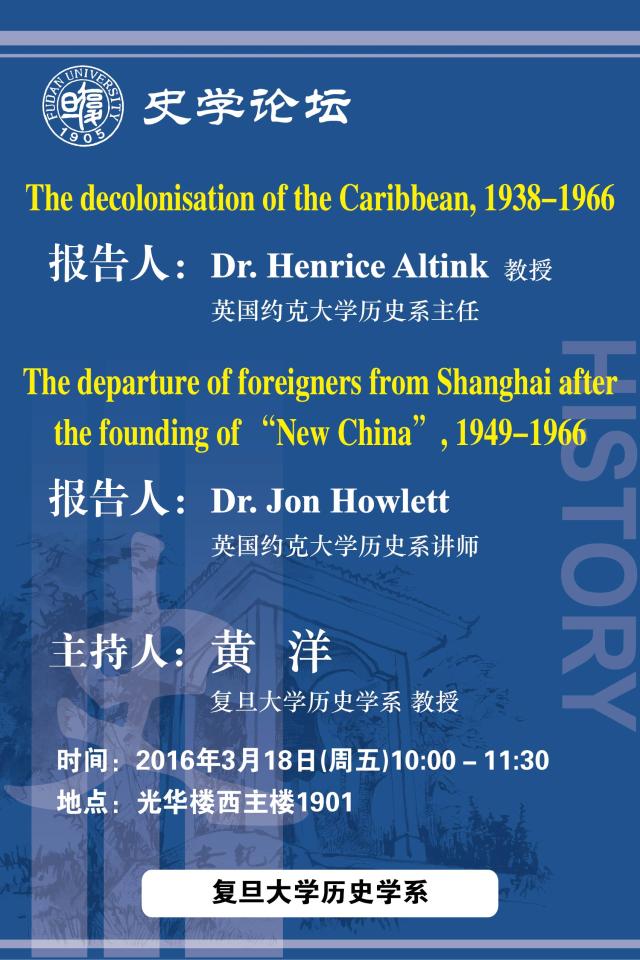
报告人简介:
Dr Henrice Altink, is Head of History at the University of York. She has written extensively about gender and race in the Caribbean during and after slavery. She is the author of Representations of slave women in discourses of slavery and abolition (2007) and Destined for a Life of Service: defining African-Jamaican womanhood (2011). Her paper today is part of her forthcoming book which explores race relations in Jamaica in the era of decolonisation. Her talk today calls for a revised history of decolonisation in the Caribbean. Rather than seeing Caribbean decolonisation as a political process that started in 1947 when politicians from the region and those based at Westminster came together to talk about independence, the paper argues that we should see it as a social and cultural process that began in 1938 when workers rose up across the region to demand higher wages and otherimprovements in their condition.
Jon Howlett is a historian of modern China working at the University of York. His research explores the social and economic transformation of Shanghai in the 1950s. This paper, based on a chapter of a forthcoming book, draws on decolonisation scholarship to establish new ways of thinking about the early years of the People's Republic of China. It does so specifically in regard to the processes of departure experienced by a range of different foreign organisations and individuals as they left Shanghai. Diplomatic officials, missionaries and the employees of international companies left when the organistions for which they worked closed down, but for the majority of ordinary foreigners in Shanghai ‘escape’ from Communist China meant a leap into the unknown. Shanghai was 'home'. Shanghai had long been a refuge for foreigners who had no identity papers, who did not belong elsewhere, or who had thrived in the semi-colonial areas at the edges of empires. The real story of the departure of foreigners from Shanghai, and the social, cultural, economic, and personal impacts of this process on ordinary people, is only now coming to be fully understood.